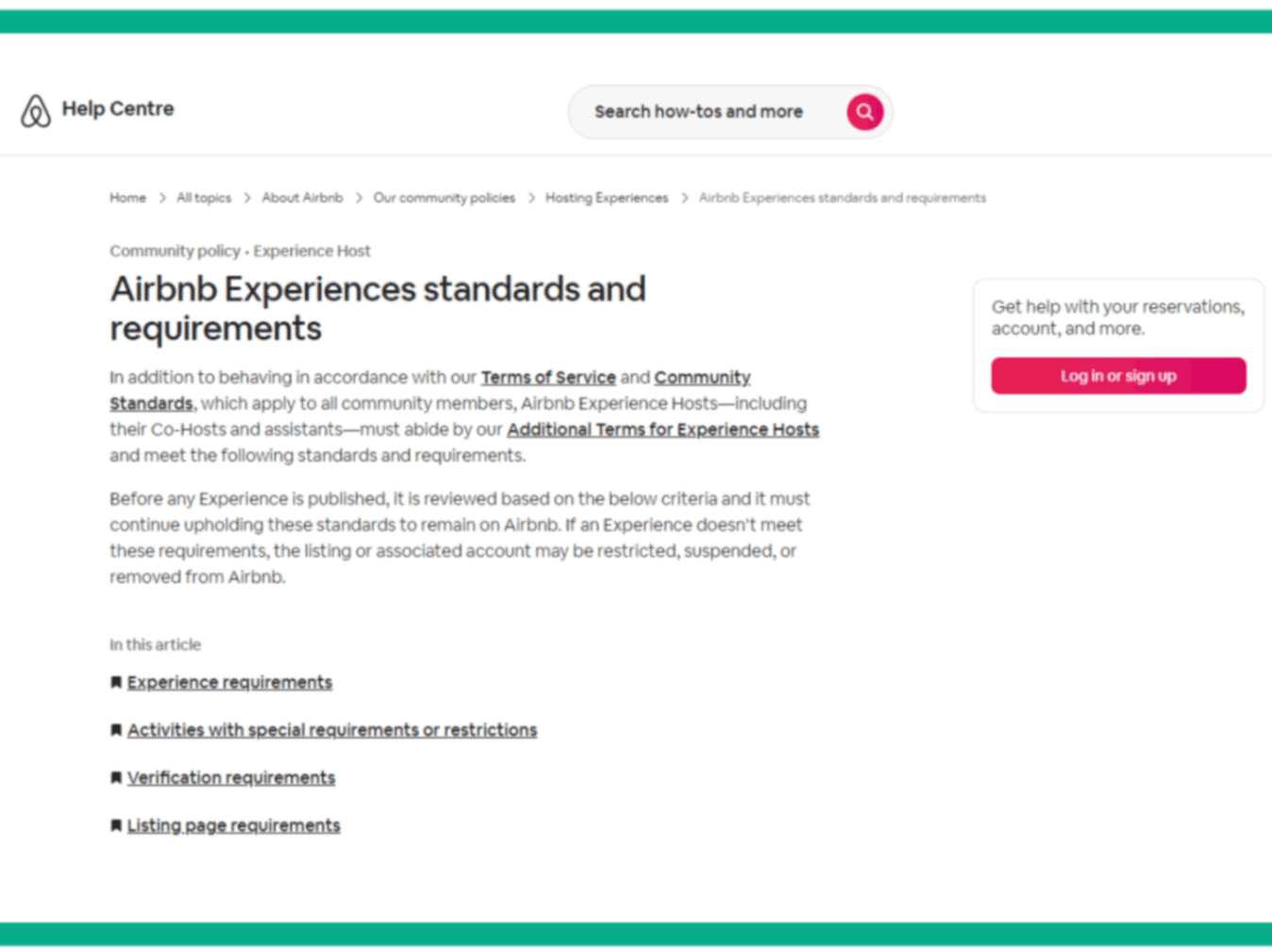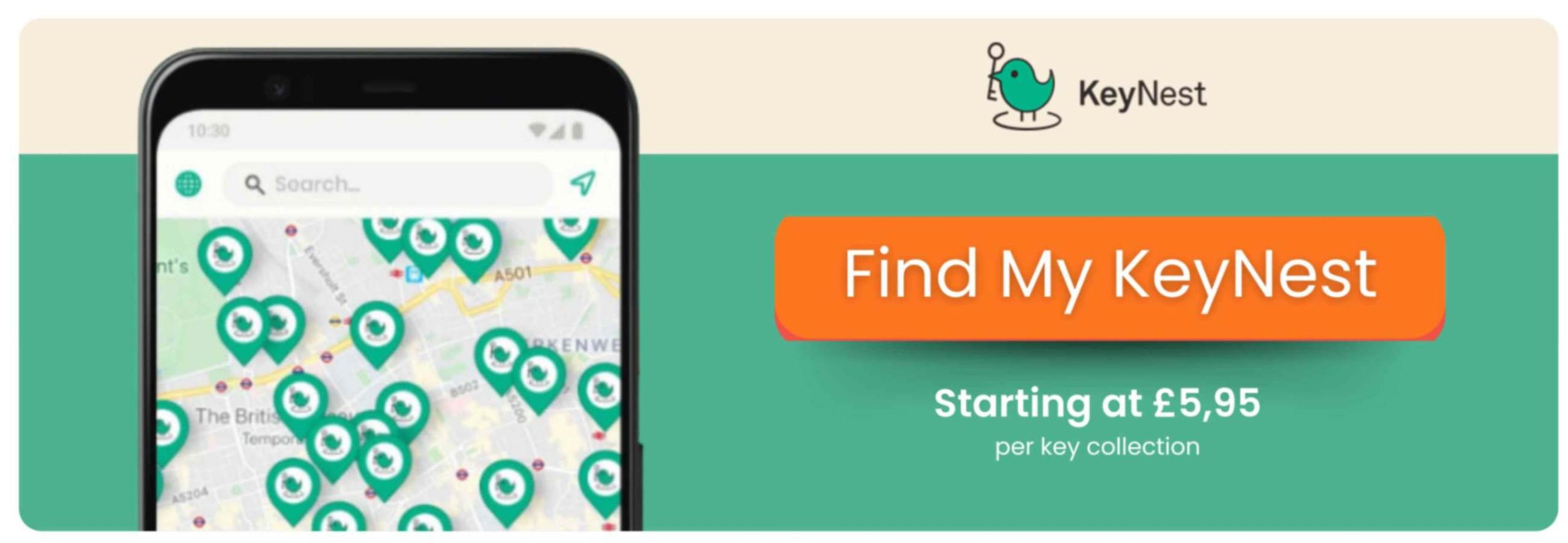Over 1500 key exchange locations nationwide
Complete Guide To Become An Airbnb Co-Host!
With the arrival of the summer, the UK will experience an exceptional influx of visitors, offering Airbnb owners a unique opportunity to maximize their income, especially if they own several properties. But managing such demand can be complex, and to handle the influx of visitors, they'll need extra support.
That's where you come in: by becoming an Airbnb co-host, you assist the owner in managing their rental and share in the profits.
Sounds promising... But you may be wondering what exactly the role of co-host entails, how it works and how you can get started?
In this article, we'll answer all these questions and guide you through how to make the most of this lucrative opportunity. You'll also discover three testimonials from co-hosts with varied backgrounds, who will share their experiences, the strategies they've adopted to maximize their income, and the lessons they've learned along the way.
What Is A Co-Host On Airbnb?
A co-host is a person who helps a short-term rental host (main host) manage their rental on platforms like Airbnb.
In concrete terms, as a co-host, you'll manage the operational tasks related to renting on Airbnb, such as managing reservations, welcoming guests, cleaning the property (or managing the cleaning provider), and communicating with tenants before, during, and after their stay.
Here's the full list of tasks a co-host can do:
Booking management
Ad optimization (title, description, photos, staging, rates...)
Communication with guests
Inspecting the Airbnb before arrival and after departure
Welcoming guests
Property cleaning and maintenance
Accounting follow-up
Of course, you don't have to take on all these tasks; you're free to choose the ones you want or feel able to manage. However, it's important to note that your remuneration will be proportional to the number of tasks completed and your commitment to managing the rental. What's more, hosts on Airbnb generally prefer to work with people who can manage their property completely or almost completely.
What Can Airbnb Co-Hosts Do?
As a co-host on Airbnb, you won't be able to make any major decisions about the property without the agreement of the main host, such as major renovations or changes to rental rates.
In addition, you can't access personal (privacy) and billing information, and you also won't have access to the main host's tax information.
How Much Money Can I Expect To Earn With Airbnb Co-Hosting?
As a co-host, you can be paid in two different ways: you can receive a fixed amount per booking (which you will have agreed with the main host and which depends on the tasks you perform) or you can receive a percentage of the total booking amount, per stay.
If you receive a percentage of the booking amount, then it will depend on how involved you are: if you take care of everything from the start of the booking to the guests' departure, then you can ask for up to around 25% of the booking. However, most co-hosts don't take care of everything, and usually charge between 10% and 20%.
If you do clean the property, you may charge an additional cleaning fee, so you'll need to work out with the host how much this will be, depending on the property and the rates in the advert.
The main host will be able to share your payments collected on bookings directly from the Airbnb platform.
Please note: As a co-host you must declare the income you receive, and do so according to standard tax and social security rules.
Do I Need To Sign An Agreement Or Contract To Become A Co-Host?
As a co-host, it's essential to sign Airbnb's terms of service policy. In addition, it's common for hosts and co-hosts to draw up a specific contract to clarify the terms and conditions of their collaboration. You can opt to use and modify a contract template available online or hire a lawyer to draft it, although this decision often depends on the main host.
We recommend that you include specific provisions in the contract for managing expenses related to property maintenance and co-hosting activities. It's important to clearly define which expenses will be reimbursed (such as the purchase of hygiene products, cleaning products, travel expenses, etc.) and the method of reimbursement.
Be careful! Don't forget to keep all invoices for purchases made, to guarantee trouble-free reimbursement.
How Do I Become An Airbnb Co-Host, Do I Need A Certain Number Of Airbnb Listing?
1. If you already have experience on Airbnb and own a listing
You can consider becoming an experienced co-host by joining Airbnb's dedicated platform, which brings together Airbnb hosts with experience who want to become co-hosts in order to help other owners and earn extra income.
To be eligible, you need to have an average guest rating of 4.8 or higher on your Airbnb listings. By talking to a potential guest, you'll be able to better understand how you can meet their specific needs as well as your own.
2. Using social networks like Facebook:
You can also find co-hosting opportunities by joining specialized Facebook groups where hosts are often looking for co-hosts to manage their properties.
Here are some groups you can join:
For more information and other websites, please refer to our Article.
3. What do I do once I've found a host?
Once you've found your host and are ready to become a co-host, make sure you meet the quality criteria required by Airbnb.
Once you've been invited by a host to manage their rental, you'll need to go through an identity verification process to confirm your identity. The main host will then send you an invitation by e-mail to formalize your role as co-host.
To find out more about becoming a co-host on Airbnb you can visit the Airbnb Help Center, which has several articles on the subject.
Airbnb Co-Hosts’ Testimonials
To offer you a practical perspective on the role of Airbnb co-host, we've interviewed several co-hosts with very different profiles. Their testimonials shed light on the day-to-day realities of this profession and can help you understand the challenges and opportunities involved.
1. Julie Gadeau’s testimonial, as an Airbnb co-host turned Airbnb concierge
Julie Gadeau is not only an Airbnb co-host, she also recently launched her own real estate concierge business. She confides:
“I'm a co-host and I also run a real estate concierge business. These are activities I carry out all year round, they're not just seasonal.”
However, she stresses the importance of commitment if one wishes to become a co-host over the long term:
“However, for the rest of the year, most owners are looking for a long-term collaboration, which requires constant and serious commitment on the part of the co-host.”
Julie currently accompanies two guests and devotes around an hour per day (per property) to this activity.
To find out more about her concierge service, you can visit her Facebook page.
2. Laure Fernandes’ testimonial
Laure Fernandes, an experienced Airbnb co-host, shares her rewarding perspectives on her role, highlighting the challenges she has overcome and the benefits she reaps.
“One of the most memorable situations I've experienced was when an appliance broke down just on the day of the guests' arrival. This triggered a whole epic to buy another one and get it ready in time.”
She manages this role as her core business, although she has reduced the number of apartments managed to maintain a high quality of service. She used to manage 15 apartments, now she manages 8, mainly due to difficulties in finding reliable cleaning staff.
Laure advises anyone considering becoming a part-time co-host to plan sufficient availability.
“For me, you really need to be available. Some guests’ questions can't wait, and you never know when they're going to drop!”
To optimize her management, Laure has automated the check-in and check-out processes. This automation frees her from the time constraints associated with physically greeting travellers.
“Everything is automated, which offers a considerable advantage: you can work from anywhere, as long as you have people you can trust on site.”
“Co-hosts are not magicians. They can't be simultaneously at 4pm in 15 different places. In the beginning, I used to welcome guests myself, but their tendency not to be on time generated stress for everyone. Now, I ask for their estimated time of arrival, and I'm always available if they have any trouble getting in.
If you too are considering setting up autonomous check-in and check-out to simplify your guests' experience, we recommend you check out our article “Smart Solutions for Remote Check-In and Contactless Check-Out for Airbnb Hosts”. There you'll find strategies and tools to make managing your Airbnb properties smoother and less stressful.
To learn more about Laure's services, please visit her Facebook page or Airbnb profile.
About Us
KeyNest offers you a convenient service for storing and exchanging your property keys. You can drop off a key at any of the 7,000+ locations in our network, so there’s one such Point located next to your property.
Guests, cleaners or contractors can then collect the key securely from a KeyNest Point or KeyNest Locker which is usually open 24/7. You'll be notified each time the key is picked up or returned, and you can even customize check-in and check-out times. By leveraging technology and a global network of locations, KeyNest continues to redefine property management, offering solutions tailored to meet the evolving needs of the rental market..
KeyNest has an ever-expanding global network of locations located just minutes from your property. To find out more you can contact us.
Francisca Silva 26 February 2025



